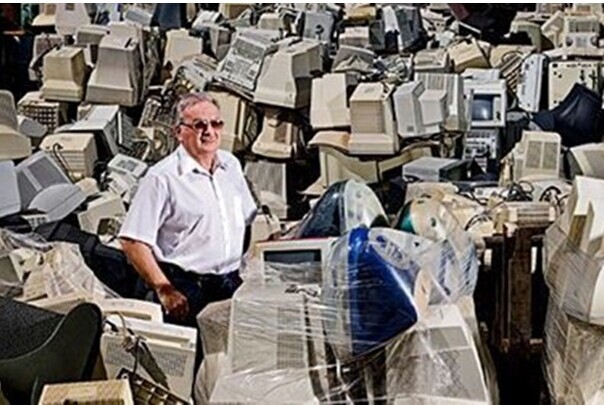
South Korea is dealing with increasing amounts of waste from electronic devices. These useless or unwanted parts are often called “e-waste.” Tons of old computers, telephones and other devices are often taken to landfills and buried under the ground. The old products may leak toxic or poisonous chemicals. Now, some local governments in South Korea are launching special e-waste recycling programs. The city of Seoul throws out about 10 tons of e-waste each year. About 20 percent of that goes to the Seoul Resource Center, also known as the SR Center. There, electronic devices are taken apart so that valuable metals like gold or copper can be extracted and reused. South Korean officials say metal extraction is a $3.8 billion-dollar industry. Ji Un-geun is the chief executive officer of the SR Center. He says reusing electronic parts is not only about earning profits. He says the goal is to protect the environment. He says, “Our planet has a limited amount of natural resources. Our company contributes to a sustainable society, by conserving these materials.” The United Nations says millions of tons of e-waste end up in developing countries. Lee Tae-hong lives in the South Korean capital. He says recycling is also about protecting personal information from attack. He says, “If devices like phones are not recycled, then they could illegally end up in other countries like China or in India, and personal data could be stolen.” Lee Joo-hong is with the Green Consumers Network. He says the average South Korean buys a new mobile phone every 18 months. He says companies offer special deals to buy new products. He says, “I have had this same phone for 10 years. It is 4 I can do to help conserve our natural resources”
本时文内容由奇速英语国际教育研究院原创编写,禁止复制和任何商业用途,版权所有,侵权必究!
1.Which country is not mentioned in the passage?
A South Korea
B China
C Japan
D India
解析:选C。C 细节理解题。根据第一段“South Korea is dealing with increasing amounts of waste from electronic devices. ”与第七段“If devices like phones are not recycled, then they could illegally end up in other countries like China or in India, and personal data could be stolen.”可知。
2.Which of the following is not the reason to recycle the e-waste?
A To protect the environment.
B To protect the personal information.
C To take apart the valuable metals.
D To make more new products.
解析:选D。D 推理判断题。根据第三段“There, electronic devices are taken apart so that valuable metals like gold or copper can be extracted and reused”,第四段“not only about earning profits. He says the goal is to protect the environment.”第六段“He says recycling is also about protecting personal information from attack”可知,答案为D.
3.How often does South Korean buy a new mobile phone?
A Every 12 months
B Every 18 months
C Every 20 months
D Every 16 months
解析:选B。B 细节理解题。根据第八段“He says the average South Korean buys a new mobile phone every 18 months.”可知答案为B。
4.You can fill the blank in the last paragraph with the word_______.
A which
B that
C what
D why
解析:选C。C 指代题。根据“I can do to help conserve our natural resources.”中的do缺宾语和It is...为宾语从句可知这里应填what,所以选C。
5.What type of the writing is this text?
A A piece of news
B A story
C An announcement
D A guide.
解析:选A。A 信息归纳题。从第一段“South Korea is dealing with increasing amounts of waste from electronic devices. These useless or unwanted parts are often called “e-waste.”可知,这则是新闻。